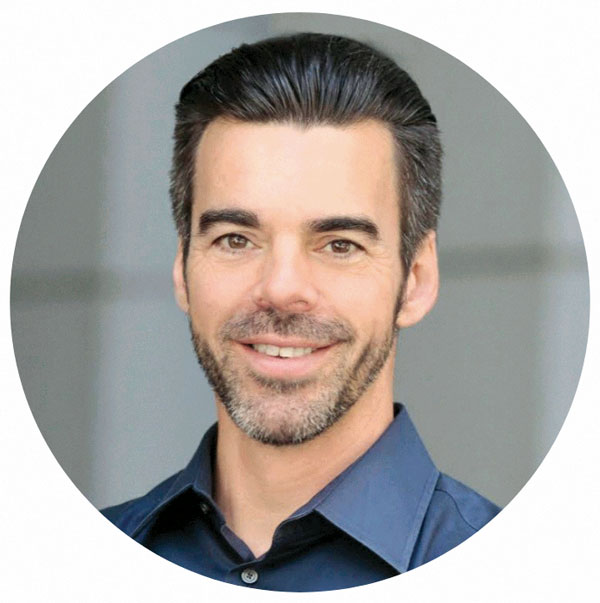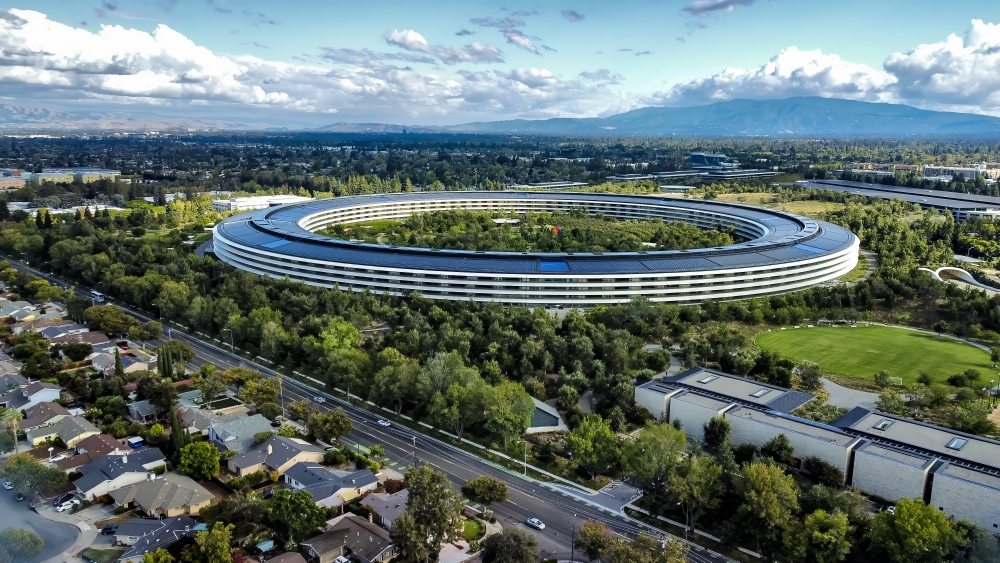The 21st century has yet to reach its prime, although technological advancements achieved during this first quarter-century abruptly accelerated the speed of work.
Our day-to-day routines have been engulfed by the convenience of new technology. In a little over a decade, we’ve unlocked the potential to have a week’s worth of groceries delivered with a few taps; receive lifesaving medicine at home without setting foot in a doctor’s office or pharmacy; arrive at a desired destination without having touched the vehicle’s steering wheel, gas pedal, or driver’s seat; and revolutionized organ transplants with 3-D bioprinting, just to name a few.
Resistance to technology, automation and artificial intelligence is a losing game in an increasingly digital age. For global startup ecosystems climbing the ranks, adaptation has been key to garnering the resources needed to scale and expertise required to support the next generation of entrepreneurs.
Around the globe, innovation is at the forefront of nearly every new decision guiding companies and talent toward their next big venture. But can we always know the best location to find the support and resources required to advance? Turns out we can.
Site Selection has dabbled in a bit of innovative thinking as well, pursuing a consolidated index of the world’s top metropolitan areas for startups and entrepreneurs. We’ve combined findings from fresh Global Startup Ecosystem reports administered by Startup Genome and Startup Blink, in addition to new VC Ecosystem Rankings from Pitchbook, in order to present this year’s best locations. A look at the global Top 10 provides insight into where innovation and entrepreneurship have found their rhythm:
| 1 | Bay Area/Silicon Valley |
| 2 | New York Metro |
| 3 | Los Angeles Metro |
| 3 | London Metro |
| 5 | Boston Metro |
| 6 | Shanghai Metro |
| 7 | Beijing Metro |
| 8 | Singapore |
| 9 | Paris Metro |
| 10 | Seoul Metro |
A general consensus among each ranking is that the world’s top two startup ecosystems are currently found in the San Francisco-Oakland-Fremont, California, metro, and the New York-Newark-Jersey City metro encompassing New York and New Jersey. The United Kingdom’s London metro came in neck-in-neck with Los Angeles-Long Beach-Anaheim, California for third place, representing the only international market to shake up U.S. dominance as the Boston-Cambridge-Newton metro rounded out the top five.
California’s crown jewel, Silicon Valley, has been a global hotspot for entrepreneurship and startup growth for generations. How magnetic is it? Data show that 66% of technology workers found in the region are foreign born, led by countries like India and China, according to the 2025 Silicon Valley Index released by think tank Joint Venture Silicon Valley.
Startup Genome gave 10s across the board to the No. 1 ecosystem for performance, funding, talent, market reach and AI-native transition, which are factors that continue to contribute to Silicon Valley’s robust international pull. New York received top points from the organization in every area but AI-native transition, although Startup Blink’s report noted that New York City remains the nation’s fastest growing startup ecosystem, closely followed by the Austin-Round Rock metro area (No. 18).
China cemented its place within Site Selection’s Top 10 Metros rankings thanks to activity coming out of Shanghai (No. 6) and Beijing (No. 7), which were additionally named as the top two startup ecosystems in the Asia Pacific by Startup Blink’s 2025 Startup Ecosystem Report. Shanghai in particular experienced a 38.4% ecosystem growth increase in 2024, surpassing Beijing’s 25% reported growth. This year, Singapore, Paris and Seoul enter and close out our top global metros rankings.
Other notable findings within Startup Blink’s report include:
- The U.S. remains the top global startup ecosystem, with a score nearly four times greater than the UK in 2nd place. While this gap has narrowed since 2020, it has stabilized over the past three years. Still, the U.S. shows signs of slowing down, with the lowest growth rate among the top 50 ecosystems at just 18.2%, compared to 26.3% for the UK and 20.6% for Israel.
- Austin–Round Rock Area is also the only ecosystem in the U.S. top 10 to rise globally this year, now ranked No. 16.
- Since 2020, Singapore has climbed 12 places, making it one of the fastest-growing startup ecosystems worldwide.
- Paris’ high growth rate at more than 34% not only helps the city to surpass Tel Aviv, but is the highest growth among Europe’s top five cities.
- Seoul has one of the highest growth rates among the top 20 globally with over 30%.

“It’s about creating the golden egg,
an army of entrepreneurs that say,
‘I’m going to take this and create a business here that is going to export, make money and hire local people.’”— JF Gauthier, Startup Genome Founder and CEO, on focusing local resources to support AI-native startups
Pitchbook’s VC Ecosystem Rankings show that investors remain concentrated on the U.S. West Coast and East Coast. San Francisco, New York, Los Angeles and Boston, in that order, land top scores across metrics relating to market, growth, deals, exits, fundraising and more. China follows the U.S. in venture capital activity as three cities, Shanghai (No. 5), Beijing (No.9) and Shenzhen (No. 10), fill in the top 10. London, Tokyo and Singapore sneak into the sixth, seventh and eighth place ranks.
Don’t Be Late
The rate at which technology evolves is the speed at which startup ecosystems should be innovating themselves.
Startup Genome Founder and CEO JF Gauthier says that we are at the beginning of what he likes to call the third era of exponential growth for startup ecosystems. For a company that advises 150 clients across 50 countries on how to build a healthy startup ecosystem, the key to success comes with embracing AI solutions or risk losing out on new economic opportunities and skilled talent.
Some ecosystems are moving faster than others when it comes to supporting AI-native ventures, Gauthier shared during a “Catching Up to the AI Ecosystem Elite: A Focus on Policy Action” panel at the Global Entrepreneurship Congress (GEC) held in Indianapolis, Indiana, in early June.
Startup Genome defines an AI-native startup as a company that builds cutting-edge generative AI models and deploys AI agents that automate tasks, enhance decision-making and drive innovation. These are entrepreneurs that leverage AI systems to address challenges and create new opportunities across every industry and do not account for companies that later integrate AI features.
A study shows that between 2023 and 2024, Silicon Valley led in AI-native startup creation at 21.4%, followed by Seattle (16.5%), Philadelphia (13.7%), Tel Aviv (13.2%) and Paris (11.6%). The reality of funding to support these ventures is that 80% of current global AI investment is concentrated in Silicon Valley, Beijing and Paris.
“We need to act rapidly to change that,” says Gauthier. “But what we see is governments acting on the advice of Nvidia, Microsoft and Amazon to build infrastructure, which is important, but all the money goes toward supporting corporations, research and universities.”
He says that instead of directing all funding toward infrastructure development to use a fraction of this budget to pour into local entrepreneurship. Examples of ecosystems that acted early and saw success in technology before experiencing exponential growth are best seen in Singapore, South Korea and Taiwan.
“They were early movers with no riveting investment but created an institute and assembly plants for semiconductors. These countries were poor, and all became rich,” says Gauthier. “It’s an enduring advantage to move in early because after there is organic growth. Tech is growing everywhere and even if the government does less the private sector will take over and grow it.”
Startup Genome released an AI First-Mover Ecosystem Score in April 2025, which measures the share of AI funding to AI-native companies within the world’s top 40 tech ecosystems. The report’s top 10 — Beijing, Silicon Valley, Toronto-Waterloo, Paris, Shanghai, Singapore, Tokyo, Amsterdam-Delta, Seattle and New York City — are all ecosystems that continue to dominate the global startup network. Meanwhile the report notes that ecosystems in locations such as Los Angeles, Tel Aviv and London risk losing dominance by underfunding AI-native startups.
AI is projected to add $15.7 trillion to global GDP within the next five years. Startup ecosystems that fail to prioritize AI face three challenges: economic decline through lost opportunities, talent flight and strategic vulnerability within industries like defense, health care and energy. According to CB Insights’ State of Venture Q1’25 Report, AI now captures one in five of all venture deals globally. This means that since OpenAI’s launch of ChatGPT in 2022, annual venture deal share has doubled in AI companies.
The sudden rise of AI, and unknown complexities of this technology, led many ecosystems to stall on cultivating new policy initiatives or allocating funding to support AI-native ventures at the time. There are positives and negatives to this delay, one benefit being a better understanding of what an ecosystem needs to enhance AI innovation.
Gauthier says locations experiencing success are the ones creating a new ecosystem specifically for AI-native startups. Funding research is not enough: Ecosystems have to build AI-targeted programs, investment funds, accelerators, networking opportunities, incubators, tax credits and more that accelerate an entrepreneur’s ability to scale at home.
New initiatives are taking place globally, as Israel is developing its own AI research foundation and the Empire AI Consortium constructs an AI computing center in New York. While these resources are beneficial to an ecosystem, they don’t aid in de-risking new investment into AI-native startups. However, in a growing AI-native ecosystem like Paris, which currently accounts for 4.3% of global AI-native funding, the city strategically decided to create its own investment fund dedicated to AI startups.
“It’s about creating the golden egg, an army of entrepreneurs that say, ‘I’m going to take this and create a business here that is going to export, make money and hire local people,’” says Gauthier. “When you look at the funding, it has to be supporting this.”

